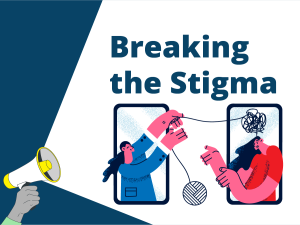In the intricate dance of human connection, empathy serves as the bridge that fosters understanding, nurtures intimacy, and mends emotional wounds. Whether you’re seeking to strengthen your bond, recover from a breach of trust, or navigate the complexities of love and marriage, empathy is a cornerstone of healing and growth.
What Is Empathy?
Empathy is the ability to deeply understand and share the feelings of another. It’s not merely about feeling sorry for someone but about stepping into their emotional world and experiencing it as they do. In relationships, empathy involves:
- Cognitive Empathy: Understanding your partner’s thoughts and perspectives.
- Emotional Empathy: Feeling what your partner feels.
- Compassionate Empathy: Taking action to help alleviate your partner’s distress.
This triad of empathy allows partners to connect on a profound level, enhancing communication and emotional intimacy.
Empathy in Repairing Relationships
When relationships face challenges, particularly after conflicts or betrayals, empathy becomes a vital tool for repair. Research indicates that expressing and receiving empathy acknowledges the impact of actions and connects to the deeper beliefs and wounds underneath the upset. This understanding makes it easier to adjust behavior and rebuild trust.
In the context of infidelity, for instance, empathy allows the unfaithful partner to grasp the depth of their partner’s pain, while the betrayed partner can feel heard and validated. Such mutual understanding is crucial for healing and moving forward together.
Empathy in Love and Marriage
In the journey of love and marriage, empathy is not just about understanding each other’s emotions but also about fostering a culture of mutual respect and care. Experts emphasize the importance of mutual understanding over winning arguments, maintaining friendships outside the marriage, and taking personal responsibility for happiness. They also highlight the need for self-care, seeking help for mental health issues, open communication about sex, and accepting a partner as they are rather than expecting change. Honest communication, even through written letters, is shown as a valuable conflict-resolution tool.
Practical Steps to Cultivate Empathy
- Active Listening: Give your partner your full attention, acknowledging their feelings without interrupting or offering immediate solutions.
- Validate Emotions: Even if you don’t agree with your partner’s perspective, acknowledge their feelings as legitimate.
- Express Understanding: Use phrases like “I can see how that would upset you” to show empathy.
- Share Vulnerabilities: Open up about your own feelings and experiences to foster mutual understanding.
- Seek Professional Guidance: Engaging in couples therapy can provide tools and strategies to enhance empathy and communication.
The Transformative Power of Empathy
Empathy is more than just a skill; it’s a transformative force that can heal wounds, strengthen bonds, and create a deeper connection between partners. By embracing empathy, couples can navigate challenges with compassion and understanding, leading to a more fulfilling and resilient relationship.
If you’re looking to enhance empathy in your relationship or need support navigating challenges, consider reaching out to HISIA. Our experienced therapists offer a safe space to explore and strengthen your emotional connection.









